The best word games for Android
Our favorite Android games that involve anagrams, crosswords and doing clever things with letters.
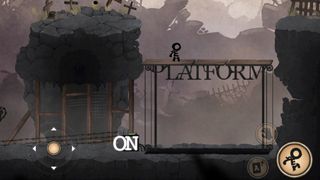
Typoman Mobile (free + $1.99/£1.89/AU$3.19)
Typoman Mobile starts off with you directing a trundling O in a barren world of silhouettes and shadows. Soon, the disc-like hero gains legs (an H), and arms (Ls), and so can scoot about like a real boy. Of course, this being a videogame, he’s at that point mercilessly pursued and torn to bits by terrifying creatures formed from the letters to DOOM.
If you’re thinking this doesn’t sound like a typical word game, you’re right. Typoman Mobile is a world away from Scrabble, echoing classic Limbo in terms of its stark visuals and puzzle-platforming.
Nonetheless, it remains deeply ensconced in word-game territory through you using letters to complete puzzles that let you progress, some directly manipulating the very environment. It’s certainly a lot more interesting – and ambitious – than yet another set of crosswords.
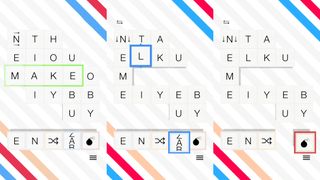
Word Forward ($2.99/£2.69/AU$4.59)
Word Forward is a word game that plays out on a five-by-five grid – but this is a much more strategic offering than the bulk of its contemporaries.
The aim is to remove every letter from the board. This can be achieved by dragging out snaking pathways to remove entire words, but you also have special tiles to help: swap tokens, a jumbler, and a bomb that obliterates a single awkward tile.
Chess-like thinking is therefore required, and the fact that you’re working with predefined rather than random boards means Word Forward’s puzzles reward repeat attempts. Figure out the path to finishing a grid without using special tiles, and you’ll win a coveted gold star. It’s top stuff if you want a thinky solo word game that offers something new.

Sidewords ($2.99/£2.89/AU$4.39)
Sidewords is a rare word game that isn’t ripping off Scrabble or crosswords. Instead, you get blank grids with words along two edges. You must use at least one letter from each edge to make new words of three or more letters. Each selected letter blasts a line across the grid; where lines meet become solid areas filled with your word. The aim is to fill the grid.
On smaller levels, this is simple, but larger grids can be challenging – especially when you realize a massive word (that on discovery made you feel like a genius) leaves spaces that are impossible to fill. Fortunately, Sidewords encourages experimentation, and so you can remove/replace words at will.
It’s clever and a bit different; and if you tire of the main game, you can fire up mini-game Quads, which marries word-building and Threes!-style sliding tiles. Two for the price of one, then – and both games alone are worth the outlay.
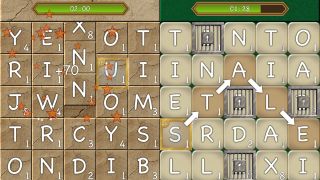
Dropwords 2 ($0.99/69p/AU$1.25)
Dropwords 2 mixes up well-based match games like Bejeweled and word games like Boggle. You’re faced with a grid of letters and must drag out words that snake across the board. When submitting a word, its letters disappear, and new tiles fall into the well to fill the gaps.
As ever in this kind of game, speed is of the essence. But also, you can gain extra seconds by submitting longer words – something that becomes increasingly important as you get deeper into the game.
Smartly, much of the game can be customized, including the board’s theme; and if you want to just chill, rather than be hassled by a relentless game-ending countdown, there are untimed modes too.
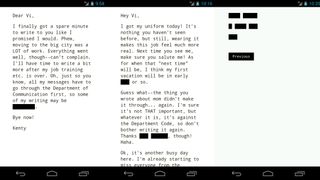
Blackbar ($1.99/£1.22/AU$2.23)
Blackbar is fundamentally a game about guessing words. Yet it’s also a chilling commentary on the dangers of a dystopian surveillance society.
The game begins with you receiving letters from a friend who’s started work at the Department of Communication. Anything from them considered controversial or negative is censored – a ‘blackbar’ – which you must correctly guess to continue.
Over the course of a number of communications, the story escalates in a frightening manner, and you find yourself feeling like you’re beating the system (man), despite ultimately just tapping in words to best a basic logic test.
If nothing else, this showcases the power of great storytelling; and filling in Blackbar’s blanks feels a lot more fulfilling than chucking more hours at a run-of-the-mill Scrabble clone.
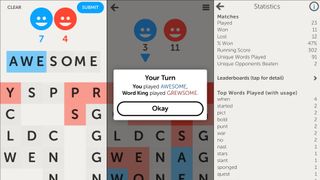
Letterpress (free or $4.99/£4.59/AU$6.99)
Letterpress merges Boggle-like finding words within a pile of letters with Risk-like land grabs. You and an opponent (an online human or computer players of varying skill levels) take turns to tap out words on the five-by-five grid. Letters you use turn your color – and those you surround cannot be flipped by the other player during their next turn.
Winning therefore isn’t just about big words – not least if its letters are scattered about. Instead, you must carefully protect your territory and gradually eat into your opponent’s land. Battles can become tense and thrilling – not usually concepts associated with a word game. But then Letterpress is no ordinary word game – it’s much better than that.

Supertype ($1.99/£1.69/AU$2.79)
Supertype is a word game more concerned with the shape of letters than the words they might create. Each hand-designed level finds you staring at a setup of lines, dots, and empty spaces in which to type. Tap out some letters, press the tick mark, and everything starts to move.
The aim is to get the letters you type to the dots. In some cases, the solution may be fairly obvious – for example, placing a lowercase l on each ‘step’ towards an out of reach dot at the top of a staircase, then having a p at the start tip over to set everything in motion. More often, you’ll be scratching your head, experimenting, trying new approaches, and then grinning ear to ear on cracking a solution.
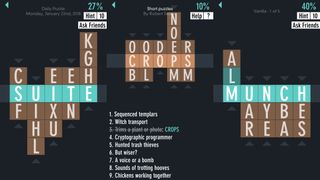
Typeshift (free + IAP)
Typeshift rethinks word searches and crosswords. You get a tactile interface of jumbled letters within draggable columns. Your aim is to change the color of every tile – and tiles only change when they’re part of a word you make in the central row.
The game occasionally heads further into traditional crossword territory, adding clues to the mix, which you must match to the words you find. Either way, it’s a brain-smashing touch-optimized word-game experience.
There are joyful animated and audio touches throughout, too, and everything feels hand-crafted, rather than you being sent endless algorithmically generated puzzles. Naturally, such polish costs money – beyond the free download, you pay for packs of puzzles. But they’re worth every penny.



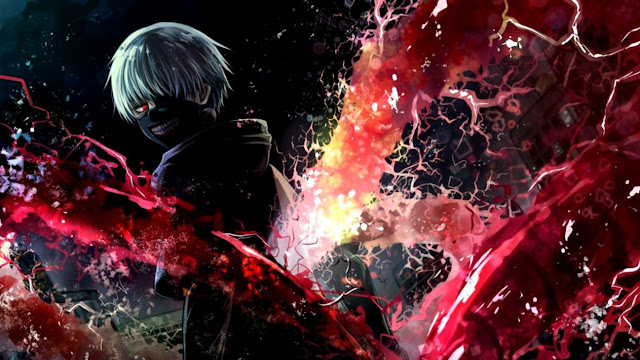

Comments
Post a Comment